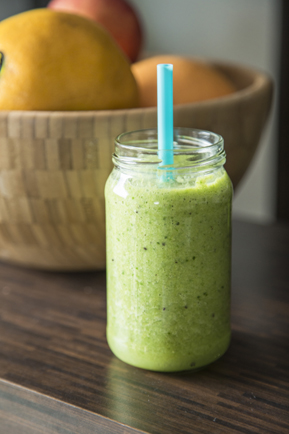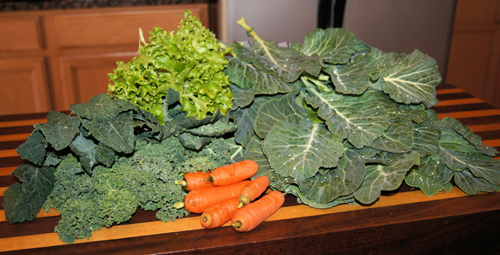Good Food – The Most Potent Part Of Our Day?
GOOD FOOD – THE MOST POTENT PART OF OUR DAY ~ ISSUE 192 ~ SEPTEMBER 15, 2015
By Diane Gold
 Good food, the most potent part of our day, needs focus. Truly, love, creativity, productive, relaxation, rest, exercise come with it. But where would we be without good food? And what would the focus of our day be like if we didn’t have it?
Good food, the most potent part of our day, needs focus. Truly, love, creativity, productive, relaxation, rest, exercise come with it. But where would we be without good food? And what would the focus of our day be like if we didn’t have it?
IMPORTANCE OF GOOD FOOD
Like money or teeth, which only take priority when we don’t have them, we don’t think too much about good food unless we spend a part of our day nurturing ourselves with it
Most of us are in environments where we have to rush to eat, compromise by eating genetically modified, non-organic food every time we eat out or don’t grow our own food so trust whatever we get.
QUALITY OF FOOD
How good is the good food we eat? Even when purchasing organic food, the National Organics Standards Board allows a massive list of synthetic and chemical products to ward off various blights that can harm produce. Check here, if you dare: http://bit.ly/1BNhl2Q. There are just as many non-synthetic substances that might be displeasing to some. But who thinks about fish heads in our vegan produce or liquid fish products to ward off rice pests?
There is, at least, one product formulator who has changed the standard for organic by creating a trademarked super organic label. He has done so because he sees the USDA label as too permissive as the link above demonstrates. He has tightened the standard on what good food is.
HOW WE CONSUME OUR GOOD FOOD
How often do we think about how we consume our good food? The following considerations are ACTION STEPS, to consider and to act upon the consideration:
1) Is our food, at least, certified organic by the USDA?
2) Is our food non-genetically engineered?
3) Have we cooked out the nutrients by applying too much heat? Some beneficial phytonutrients are released when fire is applied since we, as humans, cannot break certain cellulose walls down ourselves. But, often, heat destroys the nutrition we think we are getting, and we end up eating nutrition-less (meaning less nutrition) than we originally thought we were consuming.
Cooking is cool, but be aware and learn to raw, too.
4) What about the cookware? I have spoken about this before. See: http://warriorsofweight.com/plastics-in-food-and-bloodstream. And, today, I had a very long conversation with the product developer of one of the all ceramic pot manufacturers. The great thing about the conversation was that this owner/developer had 30 years in the industry and had done the research on the subject of toxins in cookware.
It would be great to use a pan that did not weigh a lot, had no possible toxic glaze on it and was non-stick. That’s nearly impossible. So we take what we can get. I’ve been using a ceramic glass pot when possible, but may venture out into non-stick.
5) Then, what utensils do we use?
From the time I was about 21, I began using chop sticks. It was not part of my family’s culture, but now it is. I didn’t want to put metal in my mouth. What I discovered today in researching this article is this: most of the disposable chopsticks are dipped in sulfur dioxide to inhibit mold.
Consider this, too. The Center For Disease Control lists sulfur dioxide as potentially life-threatening, causing breathing problems and chronic inflammation. Isn’t it interesting that sulfur dioxide is one of the synthetic ingredients allowed on organic produce by the National Organic Standards Board (although only 100 ppm). But it makes me wonder.
I have been using wooden, sulfur-laden disposable chopsticks for over 40 years. I am not happy about putting plastics or polymers in my mouth, and, if I get organic chop sticks, they can have up to 100 ppm of sulfur dioxide. Imagine the variation per batch that chop sticks could have. Mind-blowing.
6) How have we educated ourselves on what to eat? Do we even know how to consume the right amounts of food to make it good for us?
CONCLUSION
Let us conclude by saying that good food is crucial to our sustained life. The earlier we learn good habits related to food, the more our bodies, minds and spirits will drink in the benefits. When we have health challenges, we often review what we eat. But, today is a great day for review food and avoid causing dis-ease.
It was only a few months ago that I became certified in whole-food-plant-based nutrition. The training fortified my knowledge of good food. It also reminded me of how much I enjoy the study of nutrition and how few of us really go through a training program to learn great nutrition.
Is there any better time?

![]()
If you wish to share your story, please hit reply in your email program to be contacted.
If you need habit help, go to warriorsofweight-consulting.
![]()
FEEDBACK
We value your feedback very much.
Please leave a comment below.
Please LIKE us on the website and at
WarriorsOfWeight on Facebook.
You can also follow us on Twitter @warriorsoweight.
Thanks.
![]()
DIANE GOLD, PUBLISHER AND AUTHOR
Diane Gold, Founder of Warriors of Weight, Turning Habits Into Health, is a mentor in tai chi, kung fu and meditation, a music, fitness and stress expert, dedicated mom, studying peaceful conflict resolution, habit replacement and certified in plant-based nutrition.
She loves good food. She also enjoys reminding people that we need to learn about how to eat and that it is a skill like many others.
She says,
“So often, we go about our day, not realizing that good food fortifies us. And that every day we bypass eating well can forge the road to dis-ease.
“We need to study nutrition to know how to eat. What we may have learned from our grandmas may not take into account the science we have now. Eating well is fun. And, since we are always concerned with how we feel, it makes us feel gr-r-r-reat!
“A great way to study other than actually going to school for it, which wouldn’t be a bad idea for us all, is to make a new(or created) recipe every week or so, making sure it contains whole, organic ingredients that are not in a package. That does take away a lot of things, but it puts in their place an abundance of good food just waiting to be eaten.
“Know the value of good food and how beneficial it is for our lives.
“Finally, let’s take overall good care of ourselves because we are so worth it.”
![]()







